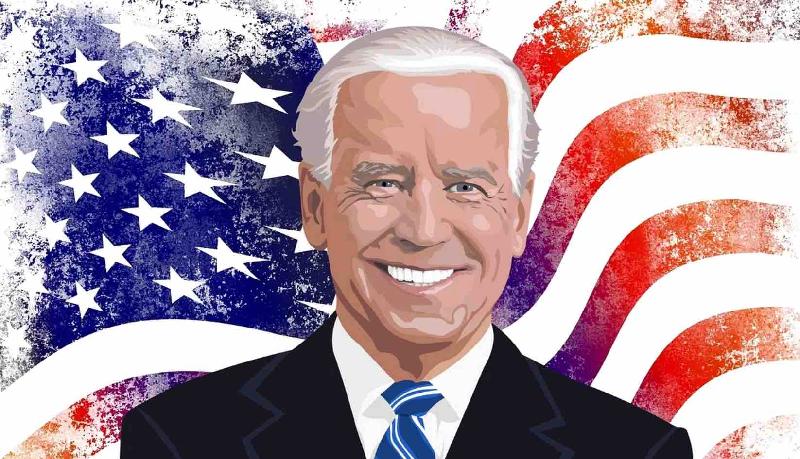In a move aimed at safeguarding national security interests, President Joe Biden has signed an executive order to restrict certain United States investments in China's sensitive technology. The order seeks to prevent US capital and expertise from supporting the development of technologies that could enhance China's military capabilities and undermine US national security. This article explores the implications of the executive order on the US-China trade relationship and the potential impact on both economies.
The Impetus Behind the Executive Order
Understand the motivation behind the US executive order restricting investments in China's sensitive technology.
The US-Chinese relationship is a complex web of trade, geopolitical competition, and military capabilities.
In an effort to protect US national security interests, President Joe Biden recently signed an executive order that aims to restrict certain United States investments in China's sensitive technology. The order is designed to prevent US capital and expertise from aiding the development of technologies that could enhance China's military capabilities and potentially undermine US national security.
The Biden administration has identified mounting evidence that US capital is being utilized to advance Chinese military interests. By limiting certain investments, the US hopes to mitigate this risk and safeguard its own national security.
The Scope of the Executive Order
Explore the specific sectors and industries that are impacted by the executive order.
The executive order focuses on three main sectors: semiconductors and microelectronics, quantum information technologies, and specific artificial intelligence systems.
Within these sectors, the order authorizes the US treasury secretary to restrict or prohibit certain US investments in Chinese entities. The goal is to prevent China from gaining access to sensitive technologies and products that could aid in military advancements.
The order's scope is deliberately limited to address only the most acute national security concerns while minimizing the impact on the highly interdependent US-China trade relationship.
US-China Trade Relations: a Delicate Balance
Examine the potential impact of the executive order on the US-China trade relationship.
The US and China have a robust trade relationship as the world's two largest economies.
While the executive order imposes restrictions on certain investments, it primarily targets technology sectors crucial for China's military modernization efforts. This selective approach is intended to prevent support for these specific areas without introducing wide-scale disruptions in trade.
The Biden administration is careful to strike a balance between guarding national security interests and maintaining economic ties. US officials emphasize that the restrictions are targeted and do not seek to entirely separate the countries' highly interlinked economies.
Chinese Responses and Potential Implications
Discover China's reactions and the potential implications for economic and trade relationships.
China has responded to recent US measures with certain retaliatory actions.
Some of these actions include banning US company Micron's chips from use in critical infrastructure and implementing licensing restrictions on semiconductor inputs like gallium and germanium.
While there may be a degree of Chinese backlash, the overall response is expected to be cautious due to factors such as declining foreign direct investment and economic instability. China is currently focused on stabilizing its economy and attracting more foreign investment, making the risks associated with significant retaliation a dubious proposition.
Unintended Consequences and Future Outlook
Explore the potential unintended consequences of the executive order and its future implications.
The executive order has the potential to have far-reaching consequences beyond its intended scope.
The Effects on Business Investments
Some critics argue that the restrictions could discourage standard business investments in China. However, this could lead to reduced foreign appetite for investment in the United States in the long run as well.
Value in National Security Agenda
On the other hand, if the administration successfully demonstrates the utility of the executive order in bolstering national security and keeping it targeted and lean, allied economies and the US private sector may find value in this agenda.
Conclusion
The US executive order restricting certain investments in China's sensitive technology reflects the government's commitment to safeguarding national security interests. By targeting specific sectors, the order aims to prevent US capital and expertise from aiding China's military modernization and potential threats to US national security.
While the order may impact the US-China trade relationship to some extent, efforts have been made to strike a balance between security concerns and economic ties. However, there is still the potential for unintended consequences that could affect business investments in both countries.
As global trade and technology continue to evolve, the effects of this executive order may have far-reaching implications for future US-China relations and the state of the global economy.
FQA :
Why was the executive order implemented?
The executive order was implemented to address growing concerns surrounding US capital being used to support China's military advancements and potential threats to US national security.
What sectors are impacted by the order?
The executive order specifically restricts investments in semiconductors and microelectronics, quantum information technologies, and specific artificial intelligence systems.
What are the potential implications of the order on the US-China trade relationship?
While there may be some impact on the trade relationship, the order is targeted to prevent support for specific sectors without causing widespread disruptions. US officials aim to strike a balance between national security concerns and maintaining economic ties.
How has China responded to the US measures?
China has responded with retaliatory actions, such as banning certain US company's chips from critical infrastructure and implementing licensing restrictions on semiconductor inputs. However, the overall response is expected to be cautious due to economic factors.
What are the potential unintended consequences of the executive order?
Some potential unintended consequences include chilling business investments in both countries and reducing foreign appetite for investment in the US in the long run. However, if the order is successful in bolstering national security, it may find support among allied economies and the US private sector.

